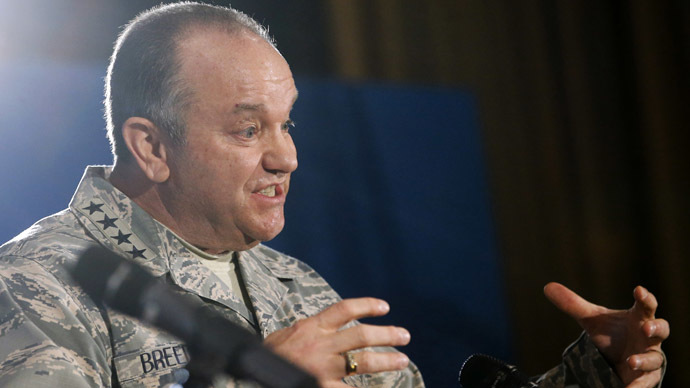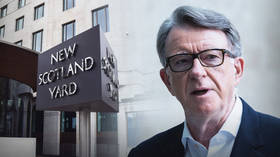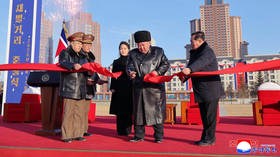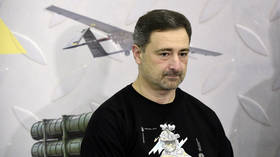NATO saber rattling: ‘When you need militarism, you invent threats to legitimize policy, budgets’

NATO’s anti-Russia rhetoric and troop build-up is not all about Ukraine, but rather an attempt to legitimize its militarism - policies and increasing budgets, says Jan Oberg, director at the Transnational Foundation for Peace and Future Research.
RT:General Breedlove expanded on his statement regarding alleged Russia aggression saying that Putin wants “the West out of Ukraine, and he wants Ukraine out of the West.” Do you think this saber rattling is all about Ukraine?
READ MORE: ‘Unprecedented & dangerous step’: Russia slams NATO troop build-up
Jan Oberg: No, the narrative, the longer perspective, if anybody remembers history any more, and the West’s expansion of NATO since the end of the Cold War, which was to break the rules and the promises that were given by Western leaders to President Gorbachev that that would never happen. Now we are kind of facing the wall. Ukraine should not have been touched by the West in this way.
So, the other thing of course is militarism. Most people think that you first define a threat and then you define what military you need. It’s the other way around: if you need militarism, if you want to expand things, you invent a threat to legitimize your military policies and your budgets, which are all increasing in this particular part of the world. And of course this man is - I should refrain from joking about his name, but he’s not exactly breeding love, he’s more of a Dr. Strangelove type of personality - he is like a man who is given a scalpel to perform surgery, but he has no idea about medicine.

RT:You mentioned the budgets there, how feasible is it? European countries are being asked to increase their military budgets and Poland is certainly asking for that to happen. But given the state of the European economy, is that actually feasible for many countries?
JO: To me it’s not a matter of feasibility. It’s a matter of looking at a Europe that does not have money and determination and morals to take care of boat refugees, in which many countries are cutting down their social spending, in which we have lots of inequality,… in which we have huge poverty, and these little elites who have never been given a democratic mandate to a plan war or have nuclear weapons. There’s never been a referendum among tax payers and citizens to do so. This is something that is out of hand. None of us - Russia, the US, China, whatever - we shouldn’t spend this much money on military in a world in which there are huge needs for something else and where we ought to talk instead of threaten each other. This is an absurd world that these guys have so much available. $1,800 billion a year are spent worldwide on the military; everything the UN does is about 30. In such a world there is no democracy.
RT:Do you fear for peace in the east of Europe?
JO: Of course I do. Because [there could be some person] in some situation who can’t foresee what the consequences or reactions he will get from the other side, a person who lacks of empathy, and who lacks a sense of conflict resolution, reconciliation, and management of tension. I’m not saying they intend to do so, but I’m saying human mistakes, human miscalculations take place and with the enormous amounts of weapons available including nuclear weapons – this could mean the end of all of us at some point. Nobody should have this power, nobody should have all these weapons in a tension situation... - there is no military solution to all these problems with Ukraine, ISIS, or whatever. Why are we having all these weapons if they are not the solution?... General Breedlove has no idea about conflict resolution, reconciliation, disarmament, or security, not to speak of peace.
The statements, views and opinions expressed in this column are solely those of the author and do not necessarily represent those of RT.
The statements, views and opinions expressed in this column are solely those of the author and do not necessarily represent those of RT.












